Politics
Europe and Brazil Forge a New Economic Alliance: A Strategic Bet on Stability, Sustainability, and Shared Values
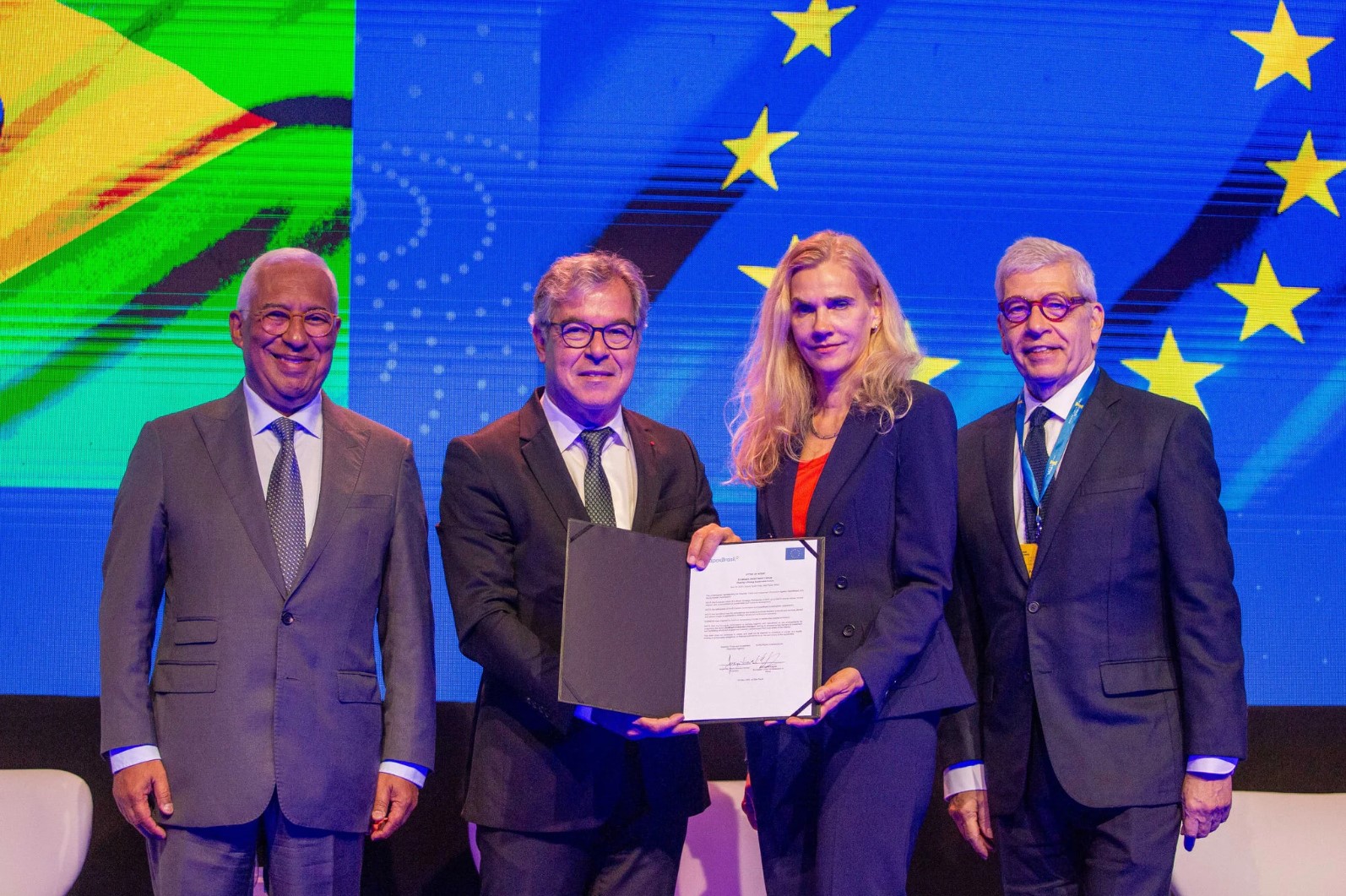
In a landmark speech delivered at the opening of the First EU-Brazil Investment Forum in São Paulo, European Council President António Costa laid out a compelling vision for a deepening economic alliance between the European Union and Brazil. Framed against a backdrop of global uncertainty—marked by geopolitical tensions, climate challenges, and shifting trade dynamics—the address underscored not only the strength of existing ties but also the vast potential for future collaboration.
The forum, held in Brazil’s economic powerhouse, was more than symbolic—it was strategic. As Costa noted, “This is the first Forum, but it follows a very long-standing relationship between Brazil and the European Union,” recalling that the two have been strategic partners since 2007. But what made this moment historic, he emphasized, was the mutual recognition that the time has come to transform that partnership into a robust geoeconomic force.
“When the outlook is uncertain, inaction is not an option,” said Costa. “But when the foundation is solid, we just need to move forward with confidence.”
A Partnership Built on Resilience and Growth
Despite global disruptions—from the pandemic to the war in Ukraine—the EU and Brazil have maintained a resilient economic relationship. According to data cited by Costa, bilateral trade grew by 65% over the past five years, and the EU remains Brazil’s second-largest trading partner, its largest foreign investor, and the top destination for Brazilian outbound investment.
European companies account for 39% of all foreign direct investment (FDI) in Brazil, outpacing investments from the U.S., China, and other regions. Since 2020, EU FDI in Brazil has grown at an annual rate of 11%, and today, Brazil ranks as the fourth-largest recipient of EU investment globally.
“Brazil is now the fourth largest destination of EU direct investment,” Costa stated. “And reciprocally, the EU is the main destination for Brazilian investment abroad, representing 35% of Brazil’s total foreign direct investment.”
The Mercosur Agreement: A Game-Changer in the Making
At the heart of this new phase is the recently concluded EU-Mercosur trade agreement, which Costa described as “a game-changer” for both sides. The deal, finalized in December 2024 after two decades of negotiations, will create the world’s largest free-trade zone, covering over 720 million people and nearly 20% of global GDP.
“The EU-Mercosur agreement will eliminate 90% of customs tariffs,” Costa explained. “It will reinforce our regions as a geoeconomic epicenter for global trade and investment.”
According to estimates from ApexBrasil (the Brazilian Agency for Promotion of Exports and Investments), the agreement could boost Brazilian exports to Europe by 10% within four years, particularly in agriculture, manufacturing, and green technologies. Broader trade flows are projected to grow by more than 30% by 2035, offering a stabilizing influence amid rising protectionism and unilateralism.
Greening the Future Together
One of the most ambitious aspects of the agreement is its commitment to sustainability. The EU has pledged €1.8 billion through its Global Gateway strategy to support a just ecological and digital transition in Mercosur countries, with particular focus on renewable energy, low-carbon steel production, and sustainable industrial value chains.
“We want to build industries capable of facing the future—with quality investments, high standards, local value creation, and decent jobs in renewable energies,”
Costa declared
The emphasis on green cooperation reflects shared priorities, especially as both blocs prepare to host major global summits later this year. Brazil will host COP30 in Belém , while the EU will co-host a summit with the Community of Latin American and Caribbean States (CELAC) in Colombia. These events offer opportunities to align climate policies and showcase how democratic societies can lead the way in decarbonization and biodiversity preservation.
A Message Against Isolationism
Costa’s speech was not only about economics—it was also a clear political statement. In a world increasingly defined by fragmentation and inward-looking policies, the EU and Brazil are positioning themselves as champions of multilateralism, rule-based trade, and open societies.
“Trade should be used to build bridges and prosperity—not walls and poverty,” Costa asserted.
He warned against unilateral tariff hikes and protectionist tendencies that distort markets and burden consumers. Instead, he called for renewed faith in international institutions and cooperative frameworks that uphold shared values such as territorial integrity, the rule of law, and democratic governance.
Strengthening the Middle Class Through Innovation and Integration
Beyond macroeconomic figures, Costa stressed the human dimension of this partnership. He argued that the EU-Brazil alliance must strengthen the middle class—a bulwark of social cohesion and democratic stability—by creating high-quality jobs, supporting innovation, and investing in education and public services.
“Democracy without a strong middle class, social justice, and a sustainable economy is fertile ground for populism and radicalism,” he warned.
To this end, the EU is expanding its presence in Brazil across sectors like digital transformation, clean technology, and scientific research. With academic freedom under threat in some parts of the world, Costa suggested that Brazil and the EU could jointly attract top talent and become leaders in cutting-edge innovation.
Looking Ahead: A Long-Term Vision
The First EU-Brazil Investment Forum marked more than a milestone—it signaled the beginning of a new chapter. Costa expressed optimism that the momentum would continue with a planned EU-Brazil Summit before the end of 2025, and further dialogues between public and private stakeholders.
“This first Forum strengthens our most precious common resource: mutual trust,” he concluded. “Trust from Brazil in the EU—and from the EU in Brazil.”
As the Atlantic winds continue to connect Europe and South America, the promise of a more integrated, stable, and sustainable future is no longer a distant dream—but a tangible goal being built one partnership at a time.
Source link
Politics
EU Condemns Georgia’s Foreign Agents Law as Democratic Setback
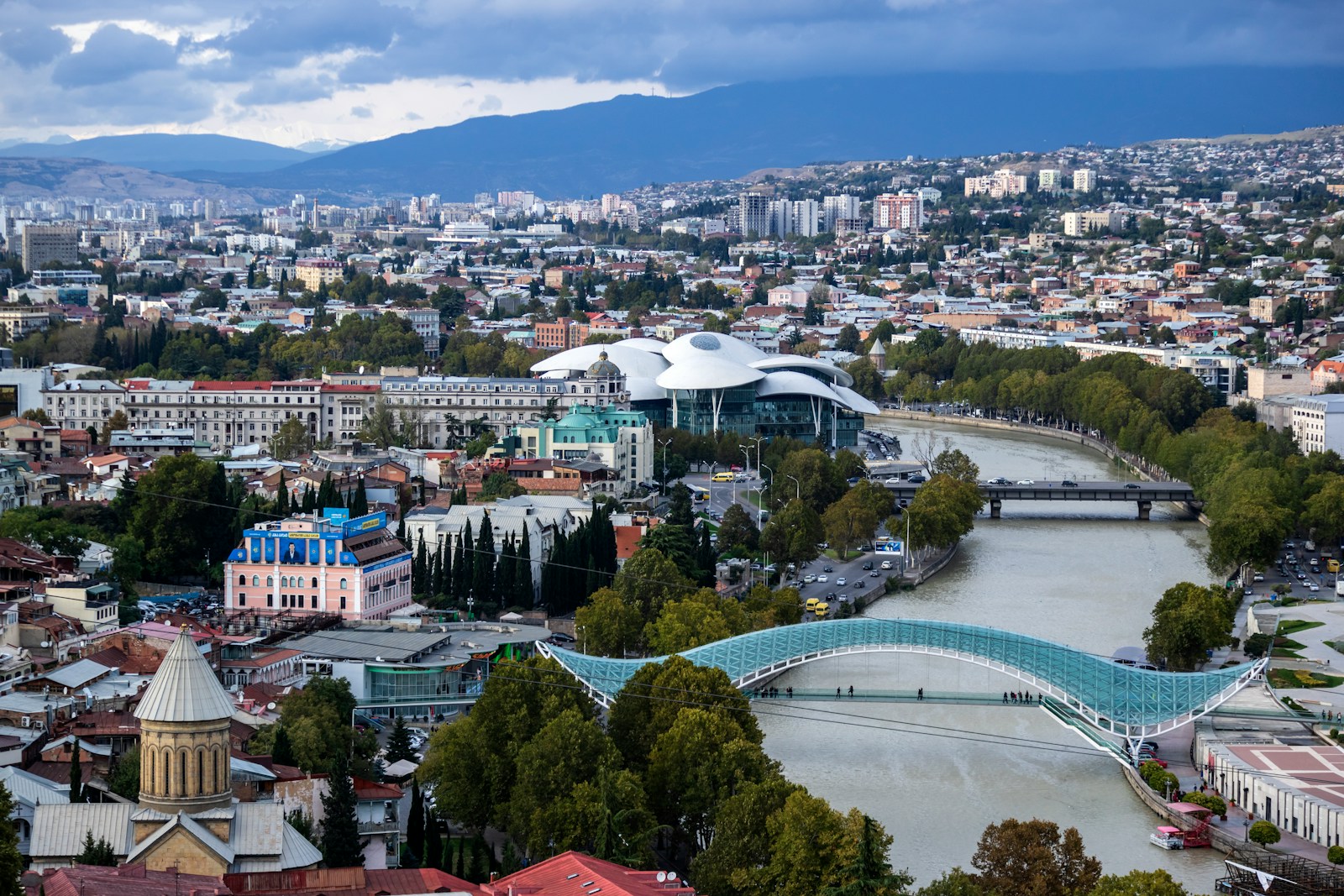
BRUSSELS — The European Union has issued a sharp rebuke of Georgia’s recent adoption of the Foreign Agents Registration Act , calling it a “serious setback for the country’s democracy” and warning that Tbilisi’s European aspirations are now in jeopardy.
In a joint statement released today, EU High Representative for Foreign Affairs and Security Policy/Vice-President of the European Commission Kaja Kallas and Commissioner for Equality Marta Kos condemned the legislation, which mirrors similar repressive laws in Russia and other authoritarian regimes.
“Georgia’s Foreign Agents Registration Act marks a serious setback for the country’s democracy,” the statement read. “Alongside recent laws on broadcasting and grants, it represents another aggressive action by the Georgian authorities to suppress dissent, restrict freedoms, and further shrink the space for activists, civil society, and independent media.”
The law, which requires non-governmental organizations (NGOs) receiving foreign funding to register as “foreign agents,” has drawn widespread criticism from international human rights groups, local activists, and diplomatic missions in Georgia.
The European Council had previously expressed concern over Georgia’s democratic backsliding in its June and October 2024 conclusions , noting that such actions jeopardized the country’s path toward European Union membership. Since then, the EU said, accession talks have effectively been put on hold.
“The accession process has been de facto halted,” the EU reiterated in today’s statement. “The EU reiterates its call on the Georgian authorities to heed their citizens’ clear demands for democracy and a European future.”
The statement also urged the release of all unjustly detained journalists, activists, protesters, and political leaders who have faced increasing pressure under the current administration.
The EU made clear that the responsibility for reversing this democratic decline rests solely with the Georgian government.
“The EU is ready to consider the return of Georgia to the EU accession path if the authorities take credible steps to reverse democratic backsliding,” Kallas and Kos stated.
The joint message underscores the bloc’s deepening frustration with Georgia’s trajectory at a time when many of its citizens continue to express strong support for integration with Europe.
As the EU stands firm on its conditionality, the question remains whether Georgia’s leadership will respond to domestic and international calls for reform—or continue down a path that risks isolating the country both politically and economically.
Joint Statement by High Representative/Vice-President Kaja Kallas and Commissioner Marta Kos on Georgia’s Foreign Agents Registration Act
Source link
Politics
EIB finances Teknia with €30 million loan to support R&D investments for the European automotive sector
- The loan will support Teknia’s research and development (R&D investments) in Spain, Poland, Romania, Germany, Sweden and Czech Republic to develop more sustainable manufacturing technologies for automotive components.
- This operation by the European Investment Bank (EIB) supports innovation and sustainability in a strategic sector for the EU economy.
- The agreement contributes to the EIB’s strategic priorities of innovation, climate action and cohesion.
- The operation is backed by InvestEU, an EU programme that aims to unlock over €372 billion in investment by 2027.
The European Investment Bank (EIB) and Teknia have signed a loan worth €30 million to finance the company’s research and development activities, and measures to apply them in manufacturing of components for the automotive sector. Teknia is a Spanish company present in 13 countries specialised in the manufacture of metal and plastic components for mobility solutions using a wide range of technologies.
The EIB loan will support Teknia’s investments in R&D and in its facilities located in Spain, Poland, Romania, Germany, Sweden and Czechia. The investments will focus on the application of advanced manufacturing technologies, product diversification and cutting CO2 emissions. The company, one of the leading Spanish automotive suppliers, will reinforce its manufacturing capabilities and digitalization which are important pillars of its strategic plan in course.
The operation contributes to the EU’s cohesion policy as a significant part of the investments (approximately 51%) will be made in cohesion regions.
“We are very pleased to be joining forces with Teknia to foster innovation and sustainability in the European automotive sector,” said Antonio Lorenzo, head of the EIB’s Corporate Lending Division Spain and Portugal. “This new financing is a clear example of how the EIB is helping companies to become more sustainable, more innovative and more competitive while contributing to strengthening Europe’s leading position in strategic sectors”.
“This important loan will allow us to keep growing during these challenging times in the automotive sector and focus even more in innovation to manufacture the mobility of the future in our plants in the most sustainable way, decreasing the carbon footprint of the group”, Javier Quesada de Luis, Teknia CEO, explained. “We look to the future with optimism and will keep reinforcing our operations digitalizing our plants and innovating to codevelop new products together with our clients”.
The EIB operation will boost EU competitiveness and help to reindustrialise a sector undergoing transformation due to the impact of developments like electrification and digitalisation.
The loan contributes to the EIB Group’s strategic priorities of innovation and climate action and cohesion. These are three of the Group’s eight priorities set out in its Strategic Roadmap for the years 2024-2027.
The EIB loan is partially guaranteed by InvestEU, the flagship EU programme to mobilise over €372 billion of additional public and private sector investment to support EU policy goals from 2021 to 2027.
Background information
EIB
The European Investment Bank (ElB) is the long-term lending institution of the European Union, owned by its Member States. Built around eight core priorities, we finance investments that contribute to EU policy objectives by bolstering climate action and the environment, digitalisation and technological innovation, security and defence, cohesion, agriculture and bioeconomy, social infrastructure, high-impact investments outside the European Union, and the capital markets union.
The EIB Group, which also includes the European Investment Fund (EIF), signed nearly €89 billion in new financing for over 900 high-impact projects in 2024, boosting Europe’s competitiveness and security.
All projects financed by the EIB Group are in line with the Paris Climate Agreement, as pledged in our Climate Bank Roadmap. Almost 60% of the EIB Group’s annual financing supports projects directly contributing to climate change mitigation, adaptation, and a healthier environment.
Fostering market integration and mobilising investment, the Group supported a record of over €100 billion in new investment for Europe’s energy security in 2024 and mobilised €110 billion in growth capital for startups, scale-ups and European pioneers. Approximately half of the EIB’s financing within the European Union is directed towards cohesion regions, where per capita income is lower than the EU average.
High-quality, up-to-date photos of our headquarters for media use are available here.
InvestEU
The InvestEU programme provides the European Union with crucial long-term funding by leveraging substantial private and public funds in support of a sustainable recovery. It also helps mobilise private investment for EU policy priorities, such as the European Green Deal and the digital transition. InvestEU brings together under one roof the multitude of EU financial instruments available to support investment in the European Union, making funding for investment projects in Europe simpler, more efficient and more flexible. The programme consists of three components: the InvestEU Fund, the InvestEU Advisory Hub and the InvestEU Portal. The InvestEU Fund is implemented through financial partners that invest in projects, leveraging on the EU budget guarantee of €26.2 billion. The entire budget guarantee will back the investment projects of the implementing partners, increasing their risk-bearing capacity and mobilising at least €372 billion in additional investment.
Teknia
Teknia is a multinational group specializing in the manufacturing of mobility components through metal and plastic components in a wide range of technologies.
Founded in 1992 as a global supplier to the automotive industry, Teknia is present in 13 countries, with 23 plants and more than 3,500 employees. The company’s clients include the world’s leading vehicle manufacturers, as well as other Tier-1 suppliers. Teknia’s revenues reached €431 million in 2024.
Politics
European Week Against Cancer 2025: EU-funded projects and initiatives contributing to enhancing patients’ quality of life
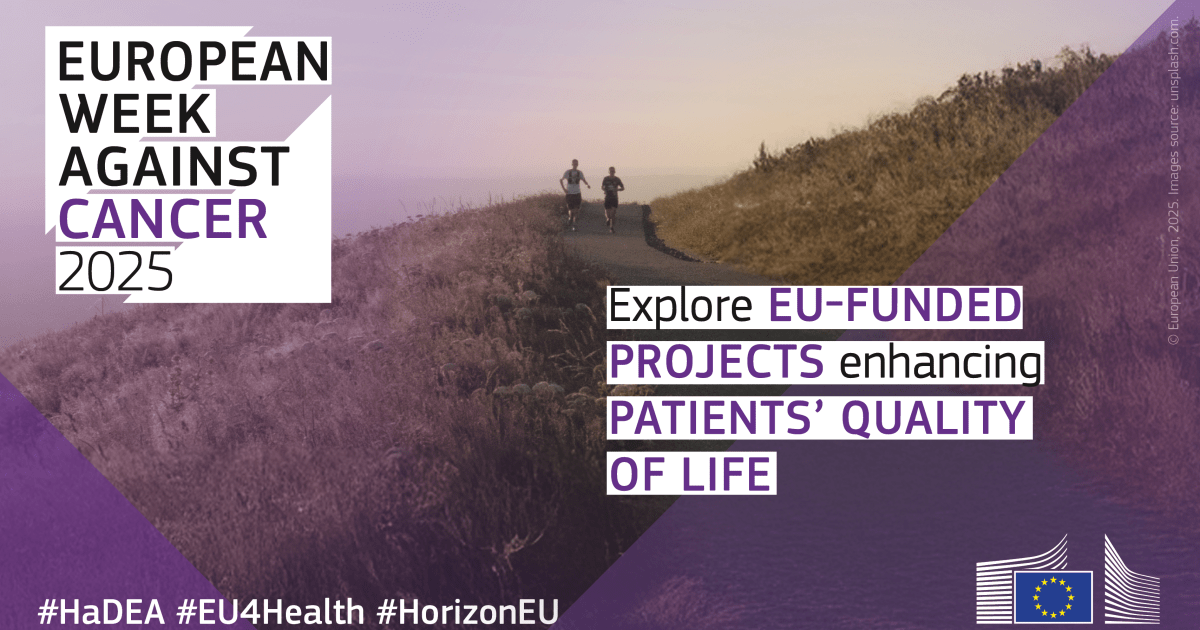
With an estimation of around 12 million people with a history of cancer in Europe, including around 300 000 children, effective therapies and supportive care are key not only to ensure higher survival rates, but also to improve patients’ quality of life before, during and after the treatment.
During this year’s European Week Against Cancer, discover EU-funded projects and initiatives that are working to provide cancer patients with the highest quality of life possible.
EU4Health
OACCUS (Outdoor Against Cancer Connects Us) developed and sustained a network of young people living with cancer to improve their quality of life through the promotion of a healthy lifestyle based on outdoor sports and exercise, a healthy nutrition, physical and mental wellbeing and a healthy environment.
The project developed a virtual platform with a total of 280 resources for young people living with cancer including articles, videos and podcasts, and trained a network of 500 Ambassadors.
The Joint Action eCAN identified actions and developed a roadmap for scaling up e-health, telemedicine and remote monitoring applications to reduce cancer care inequalities across the EU. The roadmap provides the state of play of current telemedicine practices, envisions the future landscape of digital health in the EU, and outlines recommendations that need to be taken to transition from the current state of play to the desirable future situation. According to the project conclusions, integrating telemedicine into day-to-day healthcare practices requires a combination of policy frameworks, IT infrastructure development, training and educational resources, stakeholder engagement, integration into healthcare systems, and continuous evaluation. Concretely, eCAN recommended engaging patients in the design and testing of telemedicine services, while also offering specialised training and resources to healthcare providers and caregivers to assist patients in adopting this new technology. Moreover, eCAN highlighted the need to ensure the development of solid IT infrastructures for telemedicine services and the exchange of health data among EU countries.
The work done during the project’s two years of existence will continue with the next Joint Action, eCAN Plus, a four-year initiative that will aim to enhance the digital capabilities of cancer centres in the EU, with a particular focus on Eastern Europe. Its wider scope aims to address new challenges, such as enhancing digital collaboration within and among cancer centres and aligning cancer centres with the European Health Data Space infrastructures.
HaDEA is also managing a contract to produce a study to map the provision of healthcare to Adolescent and Young Adults (AYA) cancer patients and survivors in all EU countries, Norway and Iceland. Based on the evidence collected, the study will document and analyse major barriers and enabling factors for the design and provision of quality care before, during and after cancer treatment, while also highlighting best practices and innovative approaches. The contractors will develop recommendations for future actions at the national level and suggest strategies to improve the provision of targeted healthcare to AYA cancer patients and survivors.
Another study on the quality of life for cancer patients and survivors (CanQoL+) aims to examine the policy actions implemented across countries to monitor and improve quality of life, as well as identify common indicators to comprehensively assess progress on quality of life across European countries, Norway and Iceland.
Horizon Europe
EUonQoL is establishing a standardised, patient-centred approach for assessing the quality of life of cancer patients and people with a history of cancer across Europe. By developing a harmonised methodology, the project seeks to generate reliable, comparable data to inform policy and improve patient outcomes.
Based on a literature review and co-design activities with cancer patients, caregivers and relevant stakeholders, the project has already developed a set of quality-of-life questionnaires and piloted them in cancer centres across Europe. The next phase focuses on the implementation of these questionnaires in the form of surveys at the national and European levels and spontaneous data collection, while exploring practical ways by which EUonQoL can synergise with leading initiatives and organisations in European and national cancer policy.
Background
EU4Health is the fourth and largest of the EU health programmes. The EU4Health programme goes beyond an ambitious response to the COVID-19 crisis to address the resilience of European healthcare systems. The programme provides funding to national authorities, health organisations and other bodies through grants and public procurement, contributing to a healthier Europe. HaDEA manages the vast majority of the total EU4Health budget and implements the programme by managing calls for proposals and calls for tenders.
Horizon Europe is the research and innovation programme of the EU for the period 2021-2027. The aims of Cluster 1 ‘Health’ include improving and protecting the health and well-being of citizens of all ages by generating new knowledge, developing innovative solutions and integrating where relevant a gender perspective to prevent, diagnose, monitor, treat and cure diseases. Horizon 2020 (H2020) was the EU’s multiannual funding programme between 2014 and 2020.
-

 EU & the World4 days ago
EU & the World4 days agoArabella Stanton: 5 Things to Know About the Actress Playing Hermione
-
EU & the World5 days ago
Phil Robertson’s Children: How Many Kids Did the ‘Duck Dynasty’ Star Have?
-

 EU & the World4 days ago
EU & the World4 days agoWho Is Mary Lou Retton? About the Olympic Gymnast
-

 EU & the World3 days ago
EU & the World3 days ago‘Survivor’ Season 50 Cast: See Which Stars Are Competing
-

 EU & the World3 days ago
EU & the World3 days agoWhat Is Kevin Costner’s Net Worth? How Much the Actor Makes
-
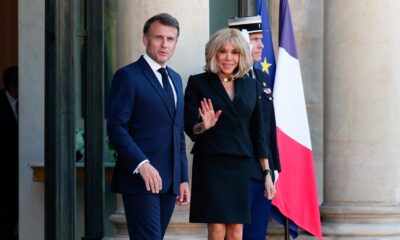
 EU & the World4 days ago
EU & the World4 days agoDoes Emmanuel Macron Have Children With Wife Brigitte?
-
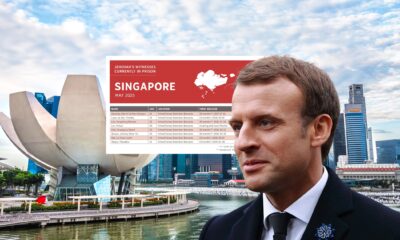
 Politics5 days ago
Politics5 days agoA call to President Macron to ask for the release of eight conscientious objectors while in Singapore
-

 EU & the World3 days ago
EU & the World3 days agoTodd Chrisley’s Kids: Everything To Know About The 5 Children He Shares With Julie







